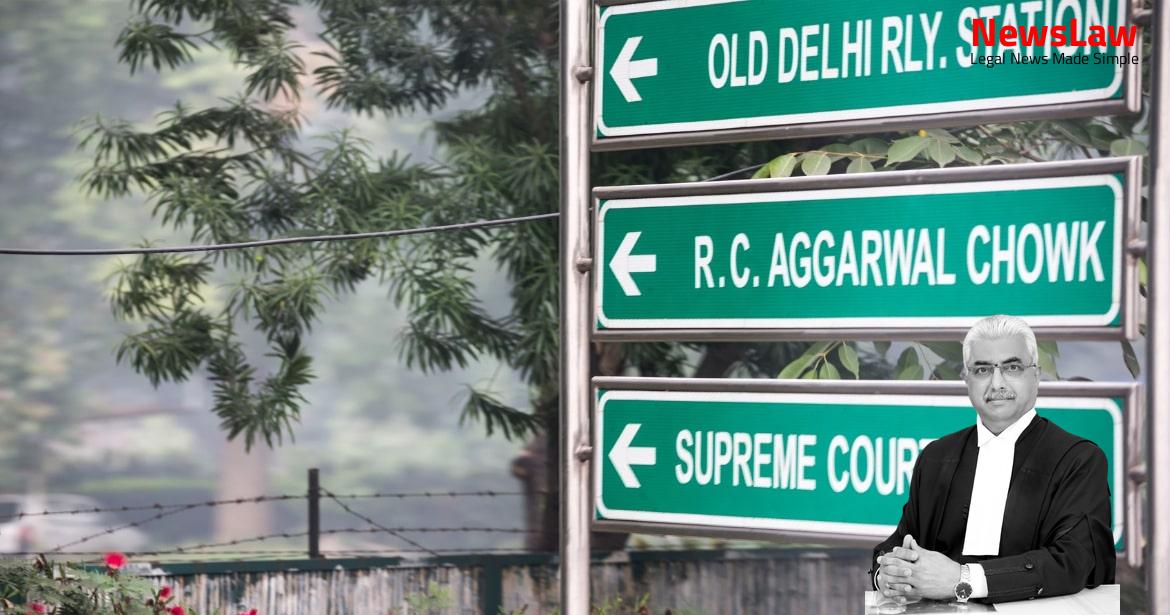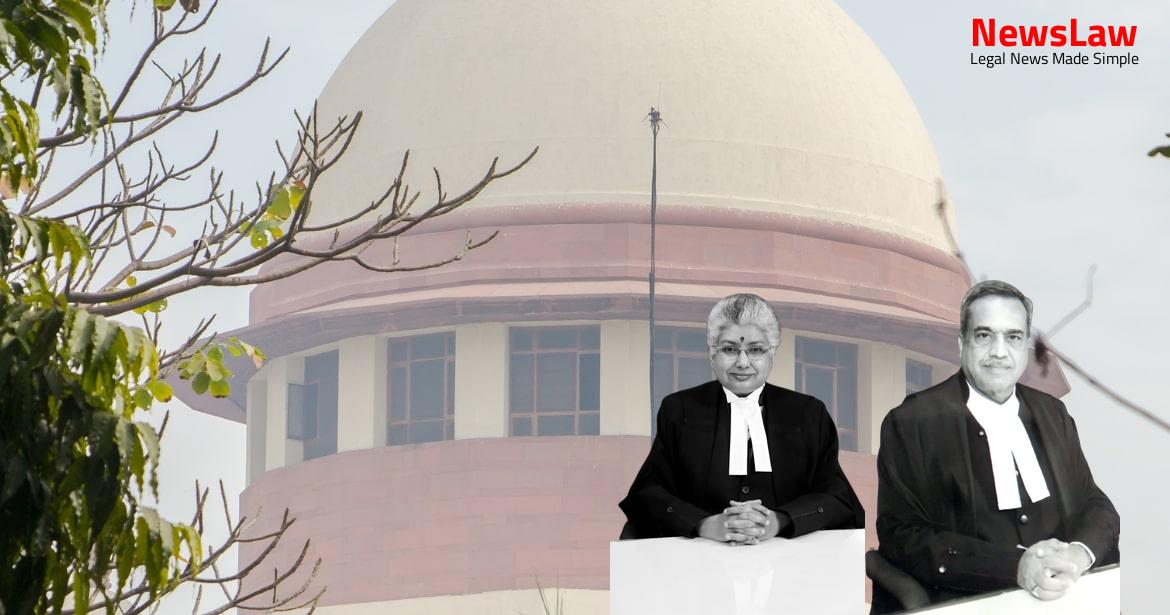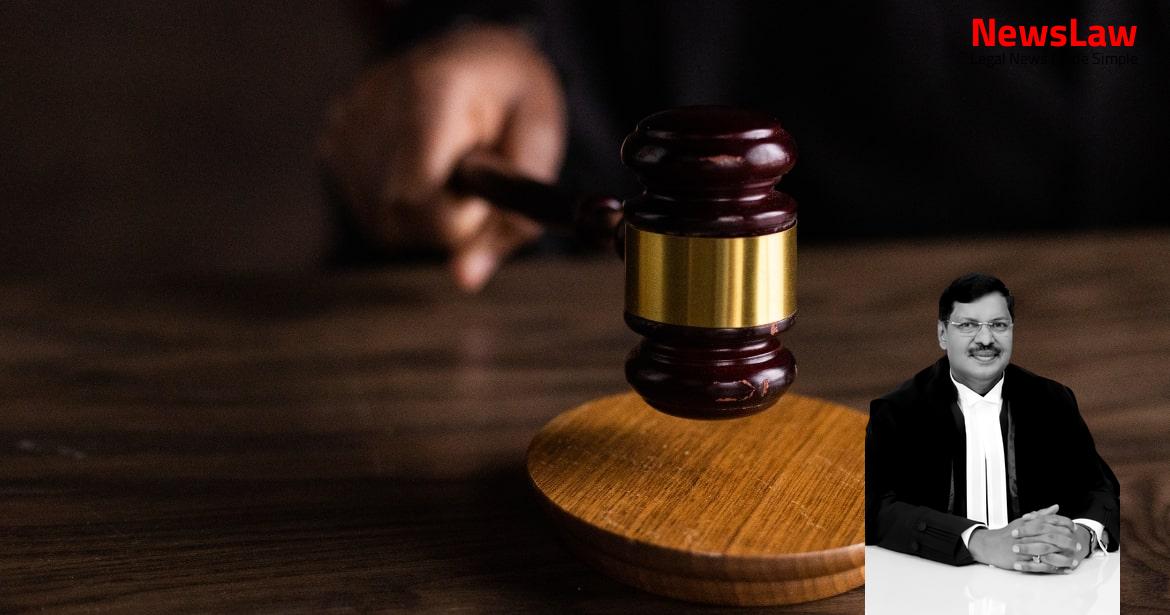In a landmark judgment by the Supreme Court of India, the case of Dharambir @ Dharma versus State of Haryana saw a significant turn of events. The appellant, who was convicted under Section 302 IPC by the Sessions Judge and later by the High Court, has been acquitted by the Supreme Court. The decision was based on the lack of conclusive evidence presented by the prosecution. The appellant’s innocence has been upheld in a crucial legal battle that highlights the importance of fair trials and evidence-based justice.
Facts
- Appellant convicted under Section 302 IPC by Sessions Judge, Bhiwani
- Sentenced to life imprisonment and fine by Sessions Judge
- Appeal filed (Criminal Appeal No. 259-DB of 1999) in Punjab and Haryana High Court
- High Court Division Bench upheld conviction and sentence on 21 April, 2008
- Appellant’s appeal against High Court’s decision is subject to challenge in present appeal
- On 5 June, 1998, at around 08:30 a.m., the deceased Karambir along with his brother and acquaintances went to Prabhat Cinema, Bhiwani.
- The FIR was registered under Section 302 IPC based on the statement of Krishan Kumar (PW-5).
- The accused had a motive for the crime as he suspected the deceased of having illicit relations with his wife.
- The autopsy revealed two incised wounds on the deceased’s upper abdomen and left forearm.
- The cause of death was determined to be shock and hemorrhage due to the inflicted injury.
- The accused was arrested on 7 June, 1998, and a chargesheet was filed against him.
- The case went to trial, and the prosecution relied on witnesses like the first informant and a witness to an extra-judicial confession by the accused.
- The accused denied the charges during the trial and claimed innocence.
- The trial court ultimately convicted the accused based on the evidence presented.
Also Read: Ramraj Singh v. State of Madhya Pradesh
Arguments
- Shri Malhotra pointed out contradictions in the evidence of witnesses regarding the seating arrangements in the cinema hall.
- Witnesses and deceased were seated in the first row reserved for women, but Investigating Officer found deceased sitting ahead of them.
- Alleged extra judicial confession by accused was deemed weak evidence, contradicted by witness statements.
- Inconsistencies in witness accounts regarding blood stains on clothes raise doubt on presence at crime scene.
- Two companions of the informant did not support the prosecution case and were declared hostile witnesses.
- Accused’s alleged confession before witnesses was contradicted by the witness, Manager of Prabhat Cinema, and Investigating Officer.
- Absence of examination of a key witness like the gatekeeper raises concerns about withheld material evidence.
- Inconsistencies in witness statements regarding accused’s actions post-incident raise questions about reliability of evidence.
- The accused is closely related to the witness (Krishan Kumar – PW-5) and the deceased, making it unlikely for him to falsely implicate the accused for the murder of his own brother.
- Ram Kumar (PW-8), the ex-Sarpanch, provided compelling evidence supporting the factum of extra judicial confession made by the accused, thereby corroborating Krishan Kumar’s testimony.
- The judgments of the trial Court and the High Court, with concurrent findings of facts, have no apparent infirmities, leading to the dismissal of the appeal sought by the accused.
- The State, represented by Shri Deepak Thukral, vehemently opposed the appeal, asserting that the testimonies of Krishan Kumar (PW-5) and Ram Kumar (PW-8) are crucial for upholding the conviction of the appellant.
- Shri Malhotra contended that without the testimonies of Krishan Kumar (PW-5) and Ram Kumar (PW-8), there is insufficient evidence on record to maintain the appellant’s conviction as ruled by the trial Court and affirmed by the High Court.
- The State implored the Court to consider the appeal and acquit the appellant of the charge, highlighting the natural and trustworthy nature of Krishan Kumar’s testimony as the deceased’s real brother.
Also Read: Case Summary: Appellant vs. G.B. Pant Institute of Engineering and Technology
Analysis
- The two star prosecution witnesses Krishan Kumar (PW-5) and Ram Kumar (PW-8) were deemed wholly unreliable, making it unsafe to rely on their evidence to affirm the guilt of the accused appellant.
- Contradictions and inconsistencies were identified in the testimonies of Krishan Kumar (PW-5), particularly regarding his presence at the crime scene and the events leading up to the incident.
- The motive presented by Krishan Kumar (PW-5) for the incident was disputed, and his version of events did not have substantial corroboration.
- The evidence relating to the accused’s alleged extra-judicial confession was deemed weak and lacked independent verification.
- Witness statements and timelines surrounding the incident were scrutinized for discrepancies, casting doubt on the prosecution’s narrative.
- The overall prosecution story lacked coherence and failed to provide a solid foundation for establishing the guilt of the accused.
- The prosecution failed to prove the guilt of the accused appellant beyond a reasonable doubt.
- The charge against the accused appellant was not established.
- The discussion shows a lack of hesitation in holding that the prosecution did not bring conclusive evidence.
Decision
- The appellant is on bail and need not surrender.
- The conviction of the appellant by the trial Court and affirmed by the High Court cannot be sustained.
- The appellant is acquitted by giving him the benefit of doubt.
- The appeal is allowed and the bail bonds are discharged.
- Pending applications are disposed of.
- The impugned judgments by the High Court and trial Court are quashed and set aside.
- The appellant is acquitted of the charge.
Case Title: DHARAMBIR @ DHARMA Vs. THE STATE OF HARYANA (2024 INSC 307)
Case Number: Crl.A. No.-001858-001858 / 2009



